Planning for tomorrow: Ensuring agriculture students have the skills they need
Scope a problem and come up with an implementable solution.
That was the basis behind this past semester’s fourth-year capstone agricultural course, AGR 4600: Agriculture and Food Issues Problem Solving.
Seems simple enough, but it actually involves a lot of thought and work. Work that will be expected of recent graduates as they make their way into the work force.
To ensure the success of students, the skill sets developed through university courses must align with the needs of the industry to produce well-rounded, career-ready graduates.
AGR 4600 has always been a problem-solving course, meant to help students enhance their critical thinking and soft skills development, within the context of agriculture and food.
“It’s a unique course for the Ontario Agricultural College (OAC) and relates to some of our key strategic intents: that employers want additional soft skill capabilities within their employees to pair with their technical knowledge,” says Rene Van Acker, Dean of OAC.
With four jobs existing for every OAC graduate entering Ontario’s food and agriculture industries, Van Acker thought this was the perfect time to give the course a complete refresh.
“Employers are generally saying that post-secondary institutions should do more to allow further opportunities for students to gain soft skills,” says Van Acker. “And we are listening.”
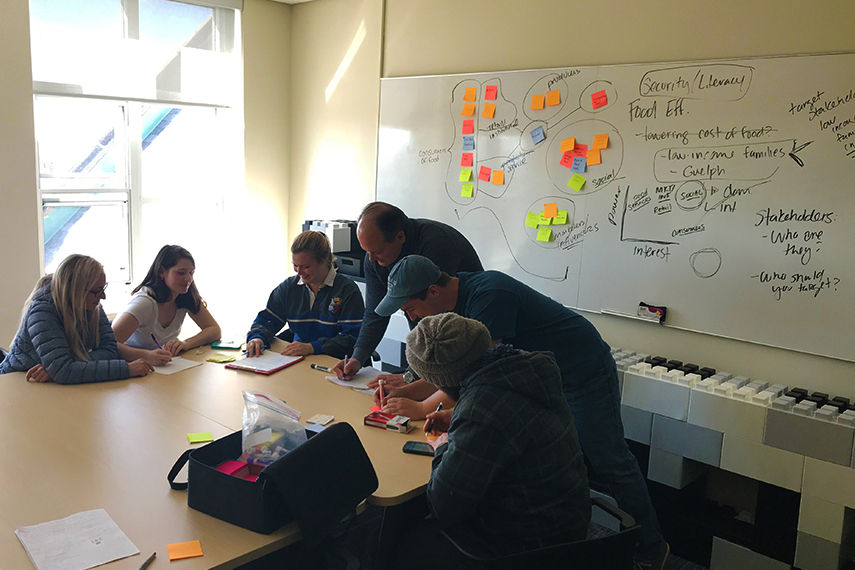
Van Acker has been teaching the course since 2007, but called upon Vern Osborne, animal biosciences professor, to bring a new perspective and help co-teach the course. He also involved the Centre for Business and Student Enterprise (CBaSE) and Erin Doherty, CBaSE Program Manager, in the restructuring of the course.
CBaSE has a cross-campus mandate to help students with entrepreneurship and innovation. Alongside Van Acker and Osborne, Doherty helped implement tools, typically used for entrepreneurs, into the fourth-year class.
Doherty, who has past experience working in corporate settings used a lot of the tools developed by IDEO, which is a global design company committed to creating positive impact and help unlock creativity and improve on problem-solving capabilities.
“Some of the biggest challenges our world faces today will be solved with innovative agricultural and food-based solutions,” says Doherty. “It’s a really exciting time for OAC students to know that their knowledge and skills will help solve some of the world’s most complex problems”.
Course content in support of workplace success
The main goal for the instructors was to help students fully understand a problem within food and agriculture.
Students were required to work in groups to identify a problem, analyze all affected parties and come up with a solution that could be implemented.
One group looked at reducing mental health problems in the agriculture sector. Their plan was to educate farmers through a "mental health conference" to help with identifying and reducing mental health concerns.
Another group wanted to tackle the issue around plastic waste in the agri-food industry. Their solution, which they created a prototype for, was to replace plastic bags with easy to carry cardboard boxes. It was a simple, yet sustainable solution to an ever-growing problem.
Each class included a discussion on current industry news and knowledge, focusing on examples of best practices in leadership. The instructors would then review the tools required for that class and the students would disperse to work on their project. At the end of the semester, they presented their projects to their instructors in a project showcase.
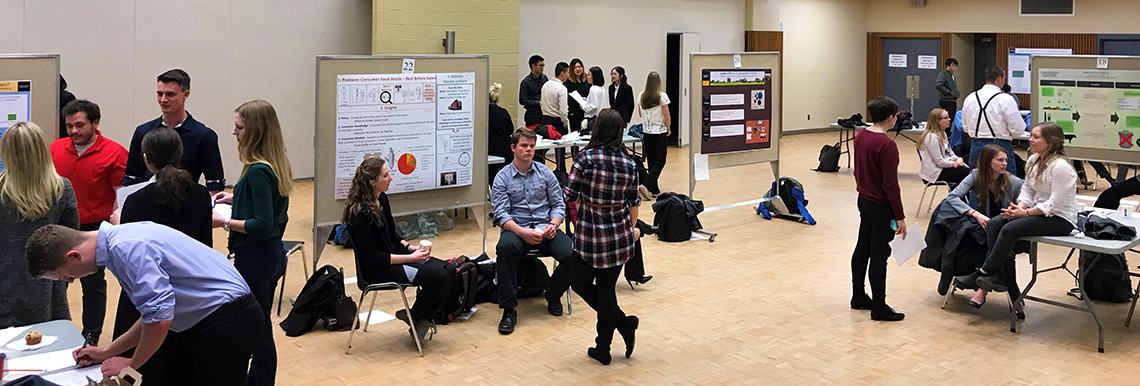
The course also had a variety of industry guest speakers to talk to students about their own professional experiences.
“As a science student, I felt as though the class was especially beneficial to me because I have not been exposed to that kind of thinking before,” says Emma Chappell, a third-year honours agricultural science student. “I found the guest speakers to be extremely motivating. As someone who wants to complete a master’s, I found it interesting to hear stories about other people’s experiences. It was quite reassuring.”
An interesting and fun addition to this year’s course included improv training from The Making Box, a local company that teaches improv for professional development. This training built students’ active listening skills, communication skills and confidence.
“The improv training was beneficial because it helped to enhance my awareness towards active listening,” says Chappell. “Something that I believe we all needed to be reminded of from time to time.”
Learning to successfully problem solve in industry
Effective problem solving takes a great deal of emotional intelligence says Doherty. Dealing with these types of problems is typically different than what students have been dealing with throughout their undergraduate career.
Throughout the semester, students had to learn to stay optimistic and work on their ability to empathize.
“They are going out to engage with the people facing these problems and you require a certain level of empathy and professionalism when doing that,” says Doherty.
Students learned quickly that dwelling on negativity would lead them nowhere. Understanding the needs in a workplace, personality types, and what others require from a team, were all skills they developed.
“I found the emotional intelligence material to be very helpful,” says Chappell. “It not only helped me to realize what conditions I thrive under but more importantly, what conditions would cause me to shut down.”
Students like Chappell learned that the more you understand your own needs within a productive work environment, the more effectively you will work with others.
Students also had to learn from failure. For some groups, once they started to scope their chosen problem they soon discovered that there wasn’t enough of a problem to base a solution off of. In Doherty’s opinion students are used to a linear progression in most courses, but AGR 4600 was actually a circular progression and always advancing.
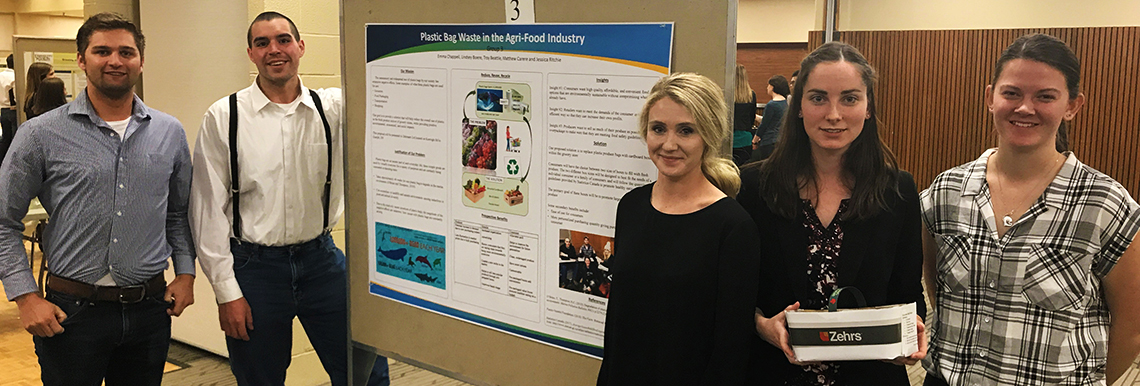
“Students had to constantly reposition their thinking, in order to come up with a solution that had legs,” says Doherty. “For a lot of students that was uncomfortable.”
But the students ultimately thrived in this alternative learning environment, and the instructors were pleased to see high levels of student engagement.
“We didn’t know what the student’s solutions would be,” says Doherty. “We helped mentor them and give them access to all the tools they needed, but everyone’s outcome was going to be different. For the students, this was definitely a different type of learning; it was a lot more ambiguous and industry focused. I think it really strengthened their leadership skills. They took the reins and understood their problem better than anyone else.”
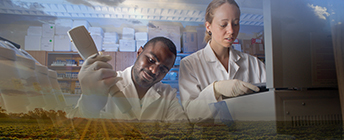 |
Read more:"Jobs Aplenty for Agri-Food Grads,
|
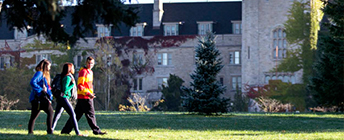 |
Read more:"OAC releases new
|